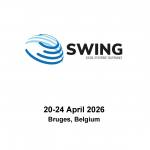The EU, China and Central Asia: Global and Regional Cooperation in A New Era

The Brussels Academy for China and European Studies (BACES) in collaboration with UNU-CRIS is organizing the workshop “The EU, China and Central Asia: Global and Regional Cooperation in A New Era”, on 7-8 June at UNU-CRIS in Bruges, Belgium.
Theme:
Both China and the European Union (EU) have positioned themselves in Central Asia as leading actors in trade, investment and development aid, as well as significant political partners. China, in particular, while initially even more absent in the region than the EU, has made a remarkable rise in Central Asia over the last fifteen years, up to the point where it is now the region’s main donor and investor. Emblematic for this rise was the announcement by Chinese president, Xi Jinping, of China’s plans for a Silk Road Economic Belt during his 10-day tour through Central Asia in 2013. Embedded within the so-called Belt and Road Initiative, the Silk Road Economic Belt is a major investment initiative aimed at expanding transport and energy corridors, connectivity and establishing new transport links between Asia and Europe. Despite China’s efforts at enhancing connectivity across Central Asia and despite both China and the EU sharing the goal of maintaining the stability and enhancing the resilience of the Central Asian countries, so far, both actors have been engaging in Central Asia separately from each other.
As the EU is currently reconsidering its strategy for Central Asia and is contemplating how to further strengthen its cooperation with the Central Asian states, now is an opportune time to reflect on how the EU could develop relations with China as part of its attempts to contribute to the sustainable development of Central Asia. Analysts have already suggested that China’s focus on hard infrastructure coupled with the EU’s focus on soft infrastructure could offer a potentially powerful cooperative base for the further development of the region. At the same time, they have also pointed out that there are substantial challenges for possible EU-China cooperation.
The overall aim of the workshop is to take stock of the existing involvement of the EU and China in Central Asia and critically assess potential areas for collaboration and synergy between the EU and China. In particular, the workshop seeks to find out to what extent there is a common ground between the EU and China in Central Asia that could serve as a base for long-term cooperation, able to contribute to the sustainable development of the region.
The workshop will start with a keynote speech on “Opportunities for cooperation between the EU and China in Central Asia” by H.E. Mr Peter Burian, EU Special Representative for Central Asia. This will be followed by parallel sessions on different topics related to the broader theme. The workshop will end with a plenary session in which the main discussion points of the parallel sessions will be presented.
Download the complete programme here.
Registration is closed.

Upcoming Events
Similar Events
No events found.


